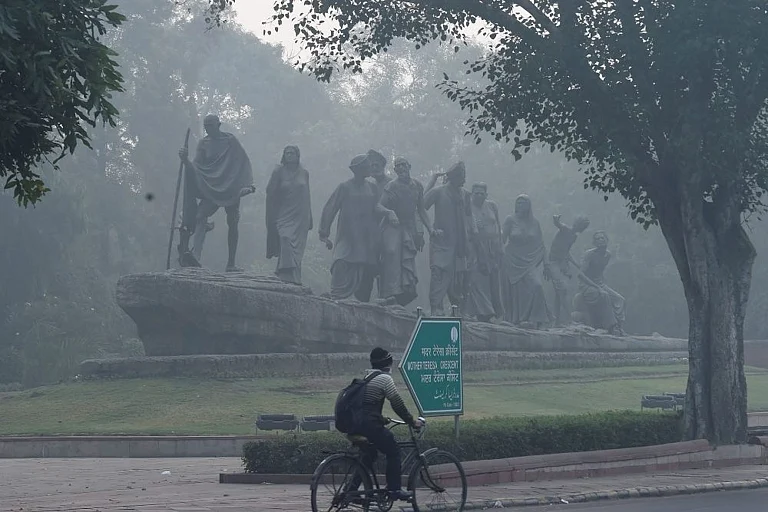Mumbai faces severe AQI levels 233-281 with PM2.5 at 101-141 µg/m³, PM10 at 130-145 µg/m³ far exceeding safe limits significantly
IMD forecasts poor air quality persisting through late November; daytime temperatures 32-34°C, nighttime 24-25°C with cooler-than-normal conditions
Humidity 56-70%; wind speeds 6-14 km/h, gentle with stagnant air patterns preventing effective pollutant dispersal; multiple pollutant sources contributing.
Air quality improvement unlikely until early December rainfall; residents advised to wear 95 masks; schools should monitor AQI; vulnerable populations require protection.
Mumbai Weather & AQI Alert: Warm Temperatures Persist as Air Quality Deteriorates to Severe Levels
Mumbai battles severe air quality with AQI 233-281 driven by PM2.5 and PM10 pollution. Daytime temperatures 32-34°C with persistent smog; air quality improvement unlikely until early December rainfall.
Mumbai is experiencing deteriorating air quality combined with unseasonably warm temperatures as November 22 brings hazardous AQI levels alongside persistent smog and haze. The Air Quality Index has surged to alarming levels between 233-281, placing the financial capital in the severe category with clear visibility reduction across the metropolitan region. The India Meteorological Department forecasts that while air quality may fluctuate, conditions will remain poor through late November before any significant improvement.
Current pollution measurements show PM2.5 at 101-141 micrograms per cubic meter and PM10 at 130-145 micrograms per cubic meter, far exceeding safe thresholds established by health authorities. Temperatures currently reach 32-34 degrees Celsius during daytime hours, with minimums settling around 24-25 degrees Celsius, representing cooler-than-normal conditions for late November.
Regional Air Quality and Temperature Assessment
Mumbai's air quality remains compromised, with AQI readings fluctuating between 233-281 throughout the day, driven primarily by PM2.5 and PM10 particulate matter. Coastal locations, including Colaba, experience relatively better conditions compared to inland areas, though still maintaining poor air quality categories. Humidity levels hover between 56-70 percent across the metropolitan region, creating conditions conducive to pollution trapping and smog formation. Nitrogen dioxide, ozone, carbon monoxide, and sulfur dioxide measurements indicate multiple pollutant sources contributing to the overall air quality degradation. Wind speeds remain gentle at approximately 6-14 kilometers per hour, contributing to stagnant air patterns, preventing effective atmospheric ventilation, and pollutant dispersal.
Extended Forecast and Health Advisory
The extended weather forecast through late November indicates predominantly clear to partly cloudy conditions with temperatures gradually declining from November 24 onwards. Maximum temperatures are expected to settle between 26-33 degrees Celsius, with minimums dropping to 23-25 degrees Celsius as the month progresses. However, air quality improvement remains unlikely until significant rainfall arrives, potentially in early December.
Residents are strongly advised to wear N95 masks outdoors, particularly during peak pollution hours in the morning and evening. Vulnerable populations, including children, elderly citizens, pregnant women, and those with respiratory or cardiac conditions, should limit outdoor exposure significantly. Schools and offices should monitor AQI levels, potentially implementing hybrid or closure protocols if severe hazardous conditions persist. The combination of poor air quality and warm temperatures creates unique health challenges requiring immediate protective measures.
